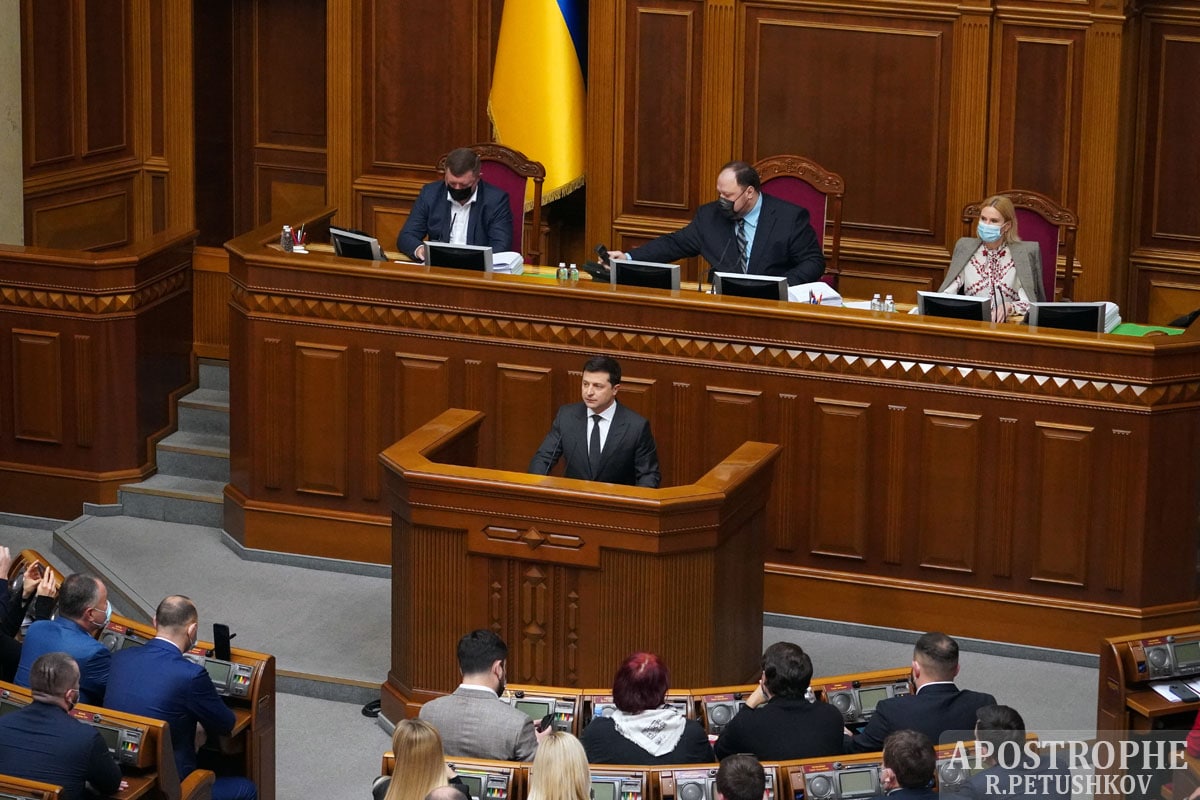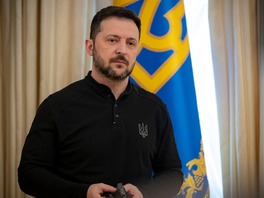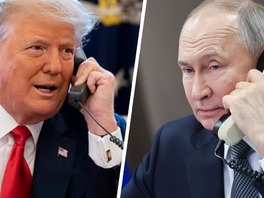After the delays in reforms in late 2020, in early 2021, the government has somewhat increased the pace of internal changes. In particular, Ukraine passed laws on water transport, electronic communications, and financial leasing. The country also established the Bureau of Economic Security and adopted the laws necessary for the land market to function properly. At the same time, the long-awaited judicial reform was launched. The judicial reform can be considered the top reform of 2021, providing for the involvement of foreign experts with decisive voting right in the selection of the Supreme Council of Justice and the High Qualification Commission of Judges members. The infrastructure reform has also yielded positive results, such as new roads, kindergartens, schools, sports venues, and medical centers. While many note potential corruption in the Big Construction project, the allegations currently have no proof. Another positive reform initiative concerns digitalization, which distinguishes Ukraine even among the developed countries. While there are still concerns about the security of personal data – such as with the Diia app – the reform makes the lives of both Ukrainian citizens and businesses significantly easier.
The Security Service (SBU) reform, on the other hand, hasn’t been implemented thus far, nor it is likely to be approved by Parliament before the end of 2021. The government also hasn’t appointed the new head of the Specialized Anti‑corruption Prosecution (SAP), albeit the President promises to select the new chief of SAP by the end of the year. In the law enforcement sector, the Ministry of Internal Affairs hasn’t undergone reforms either, and previous reform initiatives have failed to improve the quality of the institution’s work. Lastly, it is unclear if and when the Constitutional Court of Ukraine will be reformed.
There is still room for inefficiency and corruption in state-owned enterprises and the banking sector. On the one hand, there is progress, in particular in achieving the profitability of Ukrzaliznytsia, state ports, and Boryspil International Airport. On the other hand, Ukraine has increased its already excessive share of inefficient state-owned banks, with many state-owned enterprises being constantly accused of inefficient governance and corruption.
The so-called de-oligarchization law has also proved problematic, given that it may be used for political competition and fighting the opponents rather than decreasing the pressure of big business on politics. The law will enter into full force in the spring, which will allow for a better assessment of its initial purpose. Despite numerous statements of the government, the reform on Parliament’s work hasn’t been implemented either.
The overarching problem is the lack of a clear governmental focus on reforms. The process is mainly chaotic and episodic, lacking a comprehensive socio-economic model for the country’s further development, its place in the international division of labor, and the efficient use of competitive advantages. The concentration on agriculture, IT, or targeted "big" projects does not lead to sustainable reindustrialization, GDP and job growth, nor do they provide answers to the fundamental questions on Ukraine’s further advancement. The corrupt oligarchic socio-economic model created in the 1990s, which leaves Ukraine on the sidelines of global progress, dominates the country. Continued use of NATO and EU accession rhetoric without Ukraine's participation in the enlargement process of these organizations results in society's despair of a positive future, as well as the continued flight of capital and the most productive workforce. The liberal ideology of reforms is overshadowed by aggressive right-wing radical, nationalist, or pro-Russian narratives that neither the government nor the political elites can counter with a unified national idea of stable development.
PoliticalTurbulence
In 2021, competition and confrontation between major political players have intensified. At the beginning of the year, the tensions revolved around the Zelensky vs. Poroshenko and Medvedchuk dispute, which Zelensky handled quite easily. Now, however, an increasing number of actors enter into confrontation with the president. The most dangerous opponent appears to be Rinat Akhmetov, who has been actively opposing Zelensky since September. The reasons for the Zelensky-Akhmetov conflict are both economic and personal in nature.
As for economic reasons, the government focuses on providing preferences to closer, more loyal financial-industrial groups, especially Ihor Kolomoisky and his group of influence. Akhmetov's business, on the other hand, systemically experiences problems that are often discriminatory. In particular, Akhmetov's business was deprived of payments for the supply of green energy, and it was his business that suffered losses from the revision of tariffs for the transportation of iron ore by Ukrzaliznytsia. It is no surprise that Akhmetov disliked the government's endeavor to increase the rent for iron ore by passing Bill #5600, which Zelensky's supporters have openly called the anti-Akhmetov bill. The adoption of the so-called de-oligarchization bill proved to be the final straw. If Akhmetov gets on the register of oligarchs, his ability to receive foreign borrowing will be limited. Being on the list of oligarchs yields considerable reputational risks, and the richest Ukrainian has been actively transferring all his businesses to operate in the legal realm.
The consequences of the Zelensky-Akhmetov conflict are already tangible and could lead to a deep political crisis. Akhmetov controls a significant portion of Ukraine's GDP, the media sector, and is a critical player in the electricity market. At the same time, he could easily fall under the National Security and Defense Council sanctions, and his enterprises could be subject to numerous inspections. Additionally, the authorities could bring the Rotterdam+ case back to life or start dealing with the issues of environmental pollution by oligarchs. As of now, however, the parties have not crossed the point of no return, leaving room for compromise.
Akhmetov's media resources have already become the primary platform for supporting the political projects of the opposition. Among the key players keen to challenge Zelensky is the ex-Speaker of the Ukrainian Parliament Dmytro Razumkov. Former Interior Minister Arsen Avakov has also made a comeback to politics. The political projects of Dr. Yevhen Komarovsky and journalist Dmytro Gordon may be interesting as well. At the same time, politicians like Arseniy Yatsenyuk, Volodymyr Groysman, Oleh Lyashko, and Ihor Smeshko seek to return to political life. It is unclear what their role may entail in the upcoming elections, but they have been actively playing against Zelensky.
The leader of the European Solidarity faction, ex-president Petro Poroshenko continues to oppose Zelensky. Interestingly, Akhmetov providing his media platforms as a medium for Poroshenko’s publicity and attacks on Zelensky signifies the formation of a broad opposition coalition.
Viktor Medvedchuk opposes Zelensky as well, yet the president has significantly weakened the pro-Russian politician with sanctions and criminal proceedings. Medvedchuk is currently a weak player, and he has ceased to be useful even to Russia. Medvedchuk also has strained relations with the Boyko-Lyovochkin group, which seeks to fully control the Opposition Platform – For Life – a struggle requiring additional resources. At the same time, Medvedchuk continues to coordinate his actions with Petro Poroshenko, as the two have a long-standing partnership in attacking Zelensky. However, this cooperation could backfire on the duo, catching up to them in the form of joint criminal proceedings, e.g., concerning fraud in the supply of coal from the uncontrolled territories during Poroshenko's presidential term. If this evolves to be the case, it is doubtful that other political players will help Medvedchuk and Poroshenko fight the government on the matter.
At the same time, Zelensky has allies among the oligarchs. First of all, it is Ihor Kolomoisky, who sees Zelensky’s stay as president as a matter of personal security. Given that any other foreign jurisdiction could threaten Kolomoisky with arrest and extradition to the United States, he and his MPs (both in the Servant of the People and For the Future parties) coordinate their actions with Volodymyr Zelensky. In the present dynamic between Zelensky and Kolomoisky, the president controls the oligarch and not vice versa. Kolomoisky also receives certain economic benefits for his political support, including no increase in rents for manganese ores, which are largely controlled by Kolomoisky. The oligarch also may gain control of Ukrnafta’s part, which is going to be divided into two companies. However, the decision hasn’t been approved yet. Agrarian oligarchs Yuriy Kosyuk and Andriy Verevsky also support Zelensky, in particular with their votes in Parliament (they control the Dovira group). While Viktor Pinchuk strives to distance himself from the political scene, he favors Zelensky as well.
Other parliamentary parties, such as Yulia Tymoshenko's Batkivshchyna or Holos, have little influence on the political process. With this, Tymoshenko has taken a wait-and-see attitude, abstaining from assuming a stance in the Zelensky-Akhmetov confrontation. Holos, on the other hand, is far more concerned with its internal split, which has called into question the entire existence of the political project.
In general, at the end of 2021, Zelensky and his team still have the political situation under control. The Verkhovna Rada approves the decisions necessary for the president, and the authorities maintain their control over the government and law enforcement agencies. However, turbulence is gradually increasing. Precedents like Roman Sokha – a single-seat constituency MP from the Zaporizhzhia region, who had previously joined the Razumkov inter-factional union – leaving Zelensky’s party may become a pattern if the confrontation between Zelensky and Akhmetov deepens. This, in turn, could lead to the collapse of a single-party majority in Parliament.
At the same time, there are several threats posed by the authorities. First of all, it is the possibility of growing authoritarian tendencies. At present, Zelensky controls nearly all political and economic processes, with there being no counterbalance to his power. The parliamentary opposition is weak and thus incapable of countering the majority and the president. In particular, Zelensky having the instrument of the National Security and Defense Council, which can impose sanctions on almost anyone at any given time, makes Zelensky's behavior unpredictable for both Ukrainian politicians and society. The threat of authoritarianism may also prompt the formation of a coalition even without Rinat Akhmetov.
With this, 2021 was marked by the strengthening of Volodymyr Zelensky’s authoritarian tendencies in confronting political competitors, the use of the NSDC to strengthen control over the business and political opponents, intolerance of criticism, and the desire to develop Zelensky’s media empire. For instance, at the end of 2021, Zelensky's team decided to create its media empire based on DOM and RADA TV channels. They also have been promoting the interests of their partners – Igor Palitsa and Ihor Kolomoisky – in the National Council on Television and Radio Broadcasting. While Palitsa and Kolomoisky’s structures received licenses, other media resources have been systematically limited.
The problematic behavior of the president and his team may provide for a black swan event, with relatively minor violations causing a wave of outrage in society. This scenario could include situations similar to the scandal surrounding the attack on journalists by the head of Ukreximbank Yevhen Metzger, or a more recent scandal involving Deputy Interior Minister Olexander Gogiashvili picking a fight with the patrol police. The new threats may occur if the government decides to target the NBU's independence, such as by seeking to appoint a more obedient chief to print the money for important projects like the Big Construction.





